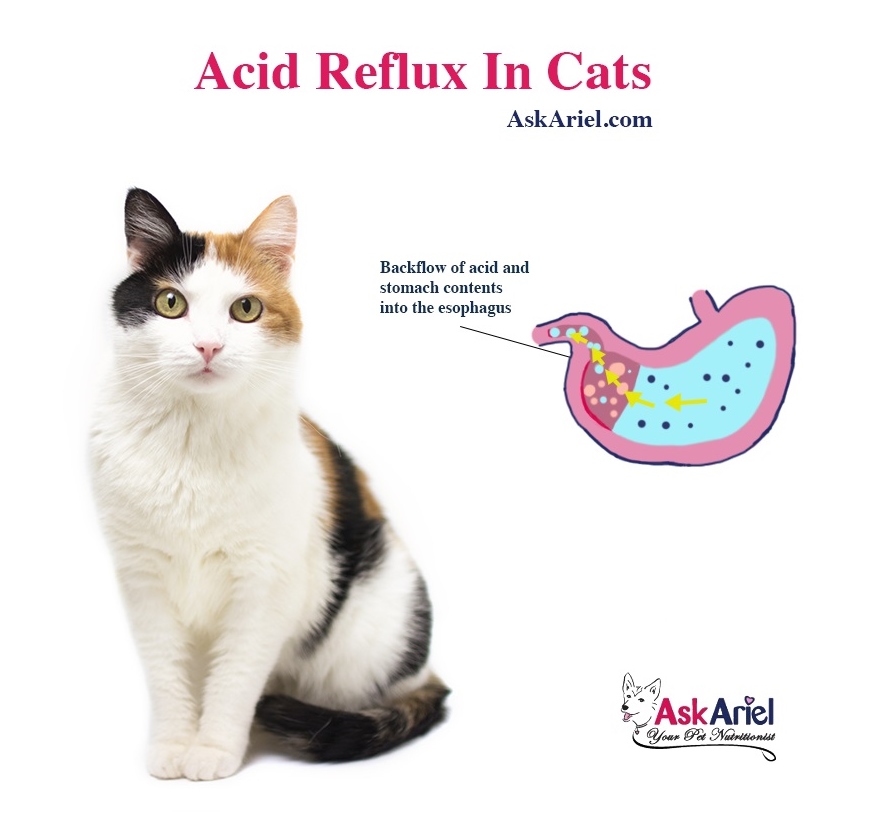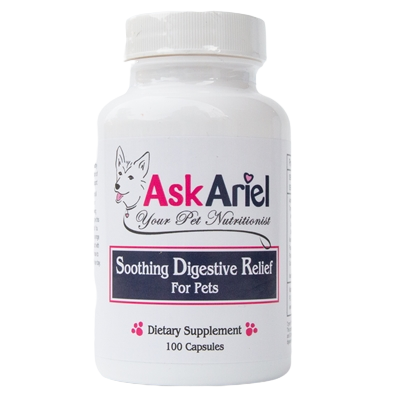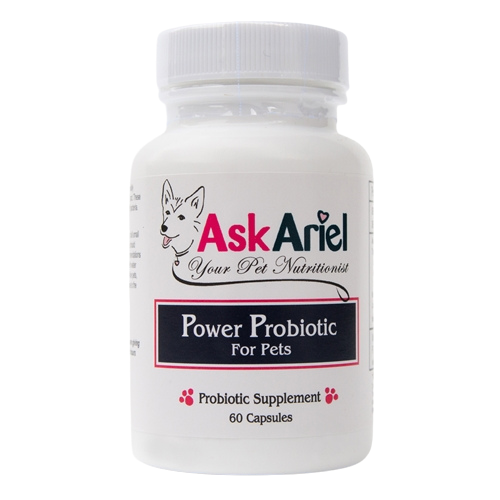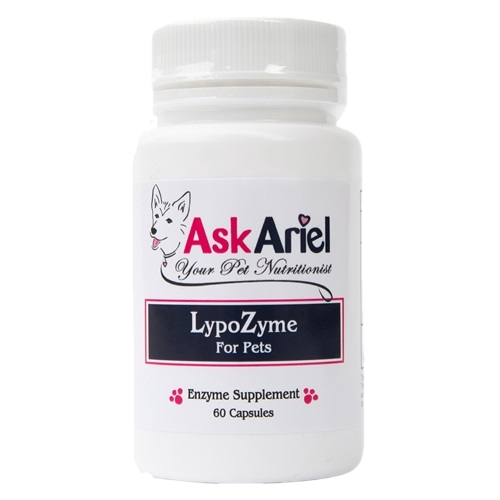Cat Acid Reflux: Is There A Natural Antacid For Cats?

Acid reflux in cats can be an uncomfortable condition, leading to symptoms like vomiting, regurgitation, gurgling sounds, and decreased appetite. If your cat is struggling with these symptoms, it's important to understand the triggers and consider natural home treatments that can provide relief. Ask Ariel has been successfully helping cats with reflux since 2005, offering easy tips for managing this condition and highlighting the benefits of natural antacids, digestive enzymes, and probiotics. These holistic approaches can help soothe your cat's digestive system and improve their overall well-being.
Cats - just like dogs and humans - are susceptible to a condition called gastroesophageal reflux disease (GERD), but commonly called acid reflux or cat heartburn. Pictured in the diagram of cat acid reflux, you can see that reflux occurs when stomach acids and intestinal fluids flow back into your cat’s esophagus. This can cause irritation, inflammation, and general discomfort for your kitty.
What Are The Symptoms of Acid Reflux in Cats?
Symptoms of acid reflux in cats can be quite uncomfortable. They may include:

Regurgitation - Cats may regurgitate food shortly after eating. Regurgitation is typically passive, meaning the food is expelled without the abdominal effort associated with vomiting.
Vomiting - Cats with acid reflux may vomit bile (yellowish fluid) or undigested food. Vomiting can occur more frequently, especially after meals.
Excessive Drooling - Acid reflux can cause irritation in the throat, leading to increased saliva production and drooling.
Bad Breath - The regurgitated stomach acid can cause a sour smell, leading to bad breath in affected cats.
Decreased Appetite - Cats may show a reluctance to eat, especially dry or hard foods, due to the discomfort associated with acid reflux.
Painful Swallowing (Dysphagia) - Cats may exhibit signs of pain when swallowing, such as hesitating to eat, chewing slowly, or dropping food from their mouths.
Weight Loss - Due to decreased food intake and frequent regurgitation or vomiting, some cats may lose weight.
Hunched Posture or Restlessness - Cats with acid reflux may exhibit a hunched posture or seem restless, indicating discomfort.
Increased Hairballs - When stomach acid refluxes into the esophagus, it can cause irritation leading to increased coughing or vomiting, which may worsen the expulsion of hairballs, especially in cats already prone to them.
If you suspect your cat has acid reflux, it’s important to consult a veterinarian for proper diagnosis and treatment. Left untreated, acid reflux can lead to more serious conditions, such as esophagitis or esophageal strictures.
What Are The Causes Of Cat Heartburn?
Cat heartburn is painful and there is a lot you can do to help them depending upon the cause. Some causes of cat acid reflux:

Diet - High-fat diets, spicy foods, or foods that are difficult to digest can trigger acid reflux. Sudden changes in diet may also contribute.
Eating Habits - Eating too quickly or consuming large amounts of food at once can increase the risk of acid reflux. Cats that eat too much or too fast may regurgitate or vomit.
Medications - Certain medications, such as steroids or nonsteroidal anti-inflammatory drugs (NSAIDs), can irritate the stomach lining and cause acid reflux.
Obesity - Overweight cats are more prone to acid reflux due to increased abdominal pressure, which can push stomach contents back into the esophagus.
Hiatal Hernia - A hiatal hernia, where part of the stomach pushes through the diaphragm into the chest cavity, can lead to acid reflux.
Stress or Anxiety - Stressful situations can exacerbate acid reflux in cats, as anxiety may lead to changes in eating habits or increased stomach acid production.
Underlying Health Conditions - Conditions such as chronic gastritis, pancreatitis, or inflammatory bowel disease (IBD) can increase the risk of acid reflux.
Anesthesia - Cats that have undergone surgery requiring anesthesia may experience acid reflux as a side effect, especially if the esophageal sphincter relaxes too much during the procedure. This is sometimes a result of not fasting your cat before a surgical procedure or improper positioning of the cat during surgery.
Home Treatments For Acid Reflux In Cats
Diet Changes - Cats are natural carnivores and thrive on a low-carbohydrate, high-protein diet. If you're wondering what to feed a cat with acid reflux, start by gradually introducing a hypoallergenic, low-carbohydrate diet. Cats with acid reflux may have sensitivities to common proteins like poultry and fish, so novel proteins such as rabbit and venison can be a good choice. It can be helpful to limit dry food, as it’s high in carbohydrates and can be harder for cats with acid reflux to digest. Consider feeding smaller, more frequent meals throughout the day and a small snack before bedtime to help manage symptoms.
Avoid Triggers - Common triggers include fatty foods, certain medications, and stress. Identifying and minimizing these triggers can significantly reduce acid reflux flare-ups and improve your cat's overall comfort.
Elevated Feeding - Elevating your cat’s food and water bowls can use gravity to help keep stomach acid from flowing back into the esophagus, making mealtime more comfortable and reducing reflux symptoms.
Weight Management - Overweight cats are more prone to acid reflux due to increased pressure on the stomach, so achieving and maintaining a healthy weight can help prevent or alleviate symptoms.
Natural Remedies - Consider using natural remedies such as marshmallow root, which can soothe the esophagus, along with probiotics and digestive enzymes to improve gut health and digestion. These supplements can complement conventional treatments prescribed by your veterinarian and help manage acid reflux symptoms in cats.
Natural Remedies For Acid Reflux In Cats
If your cat is dealing with acid reflux, there are natural remedies that can help ease their discomfort. While a full diagnosis of GERD (Gastroesophageal Reflux Disease) in cats might require special medical tests, you can often manage and relieve the symptoms at home with natural treatments.
Acid reflux in cats often stems from poor digestion. To help with this, consider using a combination of digestive enzymes, probiotics, and natural acid reducers. Here’s why these work well together:
Digestive Enzymes: Helps your cat digest fats and proteins more effectively, reducing the likelihood of acid reflux.
Probiotics: Supports a healthy balance of beneficial bacteria in your cat's gut, which can help relieve symptoms and improve overall gut health.
Natural Acid Reducers: Helps coat your cat’s stomach, soothing the irritation and discomfort caused by acid reflux and heartburn.
Many cat owners have found that using these three types of supplements together can make a big difference in managing their cat’s acid reflux. Here are three natural remedies that can help provide quick relief for your cat’s heartburn and GERD symptoms:

Soothing Digestive Relief Supplement for Cats
This acid reducer for cats calms and soothes the digestive tract. It contains scientifically proven ingredients, such as papaya leaf and marshmallow root, to protect and soothe the mucosal membrane in the stomach and digestive tract. This is an especially effective treatment for cat acid reflux at night.
Learn more about Soothing Digestive Relief

Power Probiotic for Cats
Backed by scientific research, this powerful multi-strain formula repopulates the good, friendly bacteria in your cat’s digestive tract. Contains 6 powerful probiotic strains along with prebiotics to increase absorption and survival of the bacteria.
Learn more about Power Probiotic

LypoZyme Digestive Enzymes for Cats
These easy-to-administer digestive enzymes help your cat break down and digest fats, protein and carbohydrates. This product is gentle enough for the tiniest pet and effective for larger pets.
Learn more about LypoZyme
Cat Acid Reflux Reviews & Success Stories
Since 2005, Ask Ariel has been helping cats with acid reflux feel better. Here are just a few of the cat owners who have shared their success stories with diet changes and natural remedies.
Roscoe
"Roscoe is 12 years old and was experiencing repeated vomiting after eating, first announced by a mournful wail. The vet couldn’t pinpoint his issue, as his labs are all good except he is anemic. Well I guess I would be too if I constantly threw up any nutrition. He lost a lot of weight. Vet put him on a regime of antibiotics thinking he may be suffering from a condition similar to Lyme disease. He said it can stay latent in the body for years before manifesting, as I mentioned he is an inside cat; however, he is a rescue many years back. The antibiotics seemed to help, then not at all. He was also wormed as a precaution. He continued to lose more weight and energy, although he wanted to eat. He just couldn’t keep it down.
I started giving Roscoe the Gastro-ULC and Power Probiotic. I sprinkle it onto his food. It took a couple of weeks before I started to see improvement, with some good days dashed by vomiting episodes. But he seems to have finally stabilized and is gaining weight and energy. His little nose is still pale, but seems to be pinking up. I am excited about his progress. Sorry for the long story, but wanted to let you know about another success with your supplements."
Jeanette, Michigan
Burrito
"My cat Burrito, 14 years old, started vomiting hairballs occasionally. Then It got so frequent, we had to seclude Burrito to the basement every night. She had always slept between my husband and myself. Poor kitty! Well most of the time she would vomit undigested food during the day and then early in the morning, it was a white foam liquid. So we took her to the vet and they thought she could have acid reflex, so we put her on a medication twice a day. She didn't like that at all and it didn't work--she still vomited the same.
When we took her back to the vet, the vet said it could be IBD and wanted to put her on another drug to see if the inflammation that was causing the vomiting would go away. NO NO NO! I didn't want to do that. So I did some research looking for a cat heartburn remedy and found Ask Ariel. I ordered the Feline IBD Kit combo of Probiotic, Soothing Digestive Enzymes and the NOT drops and waited for results. Wow it really worked! After I was done with the NOT Drops, we were doing our twice daily regimen of probiotics and digestive enzymes. Still every once in a while, I would find a white foamy liquid on the floor. Ask Ariel suggested to add Gastro ULC. That did the trick. My Burrito is happy again and back to sleeping with us. Thanks, Ariel!"
Tanja, North Dakota
Cambridge & Andromeda
"Well, in October of 2019 Cambridge was diagnosed with thyroid issues and he lost a lot of weight in a short amount of time. He was put on meds and a few months later he began to vomit up stomach fluids with some blood at the end. Vet said likely an ulcer from the meds. So I searched and found your products. He’s only had maybe once instance since beginning the products and it wasn’t as bad as it had been. Since then he’s been happy. These products really worked! I’m so grateful, it was a scary time. Andromeda gets the probiotics also, for gut support. Cambridge is the male orange tabby. Andromeda is the female brown tabby. Thank you for helping my babies!!!"
Teresa, Pennsylvania
Originally published Dec 11, 2023
Updated August 15, 2024
Written by: Susan Davis, Pet Health Nutritionist, CCN
All pet treatment protocols and pet treatment supplements have been reviewed and approved by a veterinarian
Acid Reflux in Cats FAQs
How can I tell if my cat has acid reflux?
Cats with acid reflux usually have a history of vomiting, salivation, and showing evidence of pain, such as meowing or howling. Acid reflux occurs when stomach acid flows back up into the esophagus. It can cause burning and ulcers which may result in decreased appetite and painful swallowing. Natural supplements can help treat these uncomfortable symptoms. It is always recommended to consult with your veterinarian before starting any treatments. Your vet may perform an endoscopy to confirm a clinical diagnosis of acid reflux or GERD in cats.
Why is my cat vomiting?
Vomiting in cats can be caused by minor stomach upset, hairballs or a more serious medical condition. Vomiting should not be confused with regurgitation. Cats that eat too fast may regurgitate undigested food. Vomiting involves foods and acids that are coming back up from the stomach and the process usually includes retching and heaving. One of the most common reasons that a cat throws up is due to food allergies or intolerances. Cats can be allergic to meat proteins or a carbohydrate ingredient in their food. Diet changes, ingestion of a foreign object and parasites can also trigger vomiting. If your kitty is throwing up frequently, you should see your vet to determine if the vomiting is a symptom of a more serious condition such as hyperthyroidism, kidney disease, IBD, cancer or pancreatitis.
Can cats have acid reflux?
Yes, cats can have acid reflux. It occurs when stomach acid flows back into the esophagus, causing discomfort and symptoms like vomiting, regurgitation, and difficulty swallowing. Feeding a low carbohydrate, hypoallergenic diet and using natural remedies can help alleviate symptoms.
|